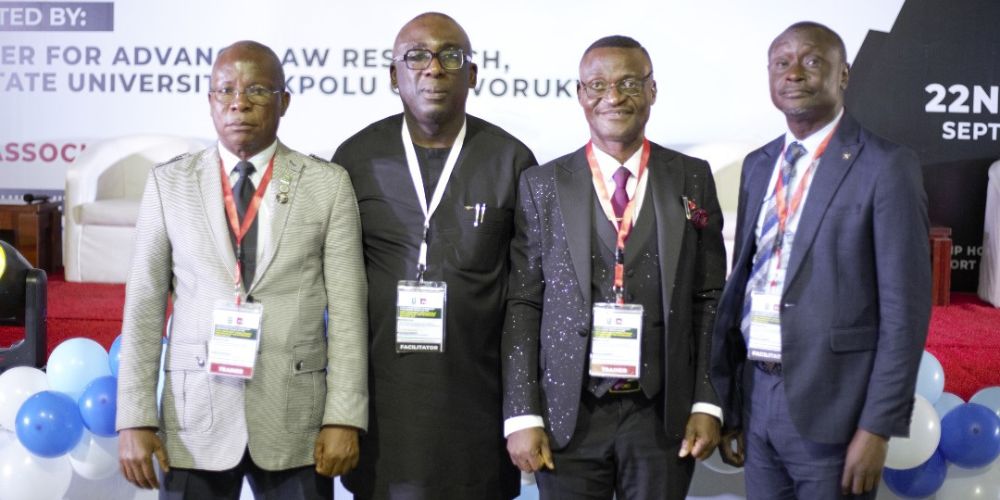Experts Fault Sections Of PIA, Call For Protection Of Host Communities’ Rights
Experts in energy and environmental law have faulted grey areas of the Petroleum Industry Act (PIA), saying some sections of the Act seek to sideline host communities in the Niger Delta Region.
The experts made this call at the opening of a two-day sensitization workshop on the host community development provisions of the PIA across the 23 local government areas of Rivers State, under the auspices of the Centre for Advance Law Research, Rivers State University and F1 Team Associates.
Advertisement
The sensitization workshop was designed to educate host communities on the provisions of the PIA and how they can access them to protect their rights.
Speaking, Professor Samuel Dike, an expert in energy and comparative environmental law, emphasized the need for political will to accelerate the effective implementation of host community development provisions of the PIA 2021 and the host community regulations to achieve development.
He recommended promoting synergy between government, host communities, and International Oil Companies (IOCs) to enhance cooperation and goodwill.
He also suggested amending Section 257 (2) of the PIA to allow for collaboration between host communities, operators, and the government to protect petroleum facilities and ensure the smooth operation of petroleum activities.
Advertisement
Additionally, he proposed amending the PIA host community provisions to allow for increased host security involvement in the establishment and implementation of Host Community Development Trusts (HCDTs).
He said: “Promote synergy between government, host community and IOC to enhance cooperation and goodwill. Amend Section 257 (2) to allow for collaboration between host communities, the operator and the government to protect petroleum facilities and ensure smooth sailing of petroleum operations.
“Amend PIA host community provisions to allow for increased host security involvement in HCDT establishment and implementation. Settlors should not be the one to choose members of the HCDT boards.”
On his part, Professor Kato Kingston, an expert in energy and natural resources law, noted that host communities have the right to seek redress through the channels specified in the PIA when they feel their rights have been violated by oil companies operating in their domains.
He emphasized that Chapter 3 of the PIA addresses matters relating to host communities, including dispute resolution mechanisms.
Advertisement
Also, Jude Ndubuisi, a legal practitioner and public policy and oil and gas expert, who earlier spoke on the Fundamentals of the Petroleum Industry Act ( Chapter Three) – Insights, Structures and Analysis, said the sensitization workshop was informed by the need to educate host communities on the provisions of the PIA and how they can access them to protect their rights.
While the acting Director/Deputy Director, Center for Advance Law Research, Rivers State University, Prof Chukwucheta Emejuru said that the PIA would require ongoing review and improvements, noting that the current 3% provision could evolve over time as stakeholders push for better terms.
“It is not going to be a one off thing and as time goes on, from the programs being organize we may even seek for further improvement in the provision of the PIA act“ Prof Emejuru said.
For some participants, Mr. Kepoye Mark, Executive Director of the Abua Odual Kepoye Foundation, said the sessions broadened his perspective on the PIA.
“My take home is that i have to discover that the PIA issues has been thrown into the institution of knowlege and as the government is coming up to sensitize the people as lawyers studying the legal aspect the implications and the role the host communities will play.”
The Local Government Chairman of Asari Toru Local Government, George Onegiyeofori, noted that the programme provided valuable information on how councils could engage with Host Community Development Committees on the use of the 3% fund.
Advertisement
Participants at the workshop, including local government chairmen, lawyers, civil society groups, and representatives of host communities, praised the initiative, saying it provided fresh insights into the PIA and its implications for host communities.
They concluded that strengthening collaboration between host communities, local governments, and regulators is essential to ensure the 3% host community development fund achieves its purpose.

